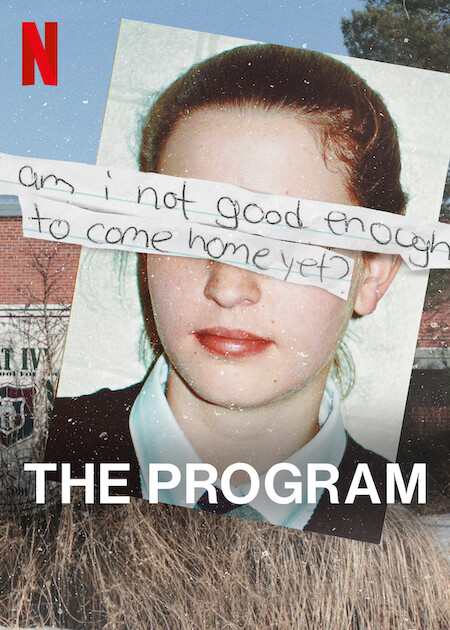No looking in the mirror
No smiling
No eye contact
Everyone walks military-style, pivoting at every corner
When using the bathroom, stall doors must remain open and monitored by a staff member
No phone calls to your parents asking to go home
No talking
Breaking any of the rules stated above would result in physical and verbal abuse, solitary confinement, food restriction and engaging in repetitive exercises for hours at a time.
These rules were in place at the Academy at Ivy Ridge, a disciplinary facility for “troubled teens” in upstate New York where children endured both mental and physical abuse and were forced to take part in many “cult-like” activities. The three-part Netflix docuseries “The Program: Cons, Cults and Kidnapping” is directed by Katherine Kubler, a survivor of Ivy Ridge, as she returns to the school with former attendees to expose the trauma and abuse that occurred within its walls.
Kubler begins by explaining the structure of the institution. Ivy Ridge had a point system and levels designed to keep students there as long as possible, exploiting parents paying thousands of dollars in tuition each month. Oftentimes, it would take months or even years for students to be eligible to pass levels and eventually graduate. If a student broke any rules, points would be deducted, and they would face severe punishments. These punishments included children lying on their stomachs in a room with no windows or sense of time, being choked and tackled by staff members and getting sexually assaulted. Two former attendees re-enacted a drill they experienced where they were forced to motion their hands continuously for eight hours, saying, “Palms up, palms together, palms apart,” after breaking the rules. The only way for students to go home was to have a parent or guardian pick them up; however, contact between students and parents was severely limited. If a letter asked for help or spoke about the abuse they suffered there, the letter was then edited by a staff member, and the student was punished. Parents were brainwashed into believing that these programs were designed to help their children. The documentary series reveals marketing brochures that portrayed Ivy Ridge as a regular high school with pictures of the kids swimming, dancing and cheerleading. Survivors interviewed in the series say those photos were PR stunts, as most of the time they were not even allowed to go outside. “They were being treated like prisoners,” said Brandy, a former staff member, who did not last long on the job.
Ivy Ridge was situated in the New York town of Ogdensburg with a very high unemployment rate which provided jobs for its local residents. Eventually, the town became financially dependent on the institution for its economy. There was little eligibility requirement, background checks or training for staff members. One guiding principle recalled by a former employee was, “If you are being mean, if the students are complaining about you, you are doing a good job.”
The Academy of Ivy Ridge was not licensed or registered by the New York State Department of Education, making the “diplomas” that students received effectively worthless. This led to the eventual shutdown of the school in 2009 after the State Attorney General’s Office sued the institution for issuing these fake diplomas.
Unfortunately, Ivy Ridge was not the only one of its kind. The institution falls under the umbrella corporation led by Robert Lichfield, the World Wide Association of Specialty Programs and Schools, with dozens of similar programs across the U.S. and in other countries such as Mexico, Costa Rica, Jamaica and Samoa. While many lawsuits were filed against this company that have led to the dissolution of WWASP, many programs still operate today under Lichfield’s shadow. Recently, more people are speaking up about their mistreatment including Paris Hilton who discussed her emotional and physical abuse at a Utah boarding school in a 2020 documentary, pushing for the Stop Institutional Child Abuse Act.
Kubler stresses that she is not a journalist, but someone who seeks answers and hopes to shine a light on the emotional scars suffered by children in these institutions, many of whom today face PTSD. Kubler recounts the people she remembers from Ivy Ridge and finds that around 40 have died from suicide. “These programs do real and lasting damage to children and families,” said journalist Maia Szalavitz who aided Kubler in her research on harmful child institutionalization.
The documentary “The Program: Cons, Cults and Kidnapping” stresses the need to re-evaluate these youth behavioral programs that operate on little to no oversight. Encouraging more individuals to share their experiences can serve to not only expose problems in these institutions but also call for urgent action. Advocacy to ensure greater regulations and transparency about their operations is vital to support healing for survivors and families and to provide more protection for vulnerable youth in the future.
“The Program: Cons, Cults and Kidnapping” sheds lights on child institutionalization
“The Program: Cons, Cults and Kidnapping” is a docuseries on Netflix.
Story continues below advertisement
Tags:


